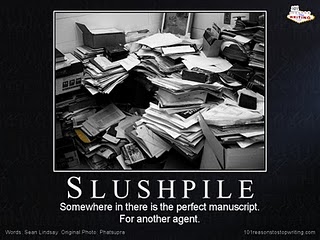Seems everyone wants to write a book…and a lot of people do…and they do it well. But this is only half of the story…the rest falls into the nebulous world of having your work published by someone other than you…although this is always an option.
Years ago an author friend of mine whose several books have found their way to bookstore shelves, thanks to various publishers, quipped something like, “Well if you want to have a garage full of your books for 10 years that you have to schlep and market on your own, by all means self-publish.” Need I say more? The advent of E-Publishing has changed some of this, and there are some incredible success stories like Amanda Hocking up in Minnesota…nevertheless, self-publishing even E-Publishing still is a lot of work and can cost plenty.
These options have never appealed to me (although I can change my mind!) which is why I have preferred to endure the slog of finding literary representation over the years. A lot has changed in 20 years in this regard and the joy of seeing the longest pregnancy in history come to fruition on the shelves of Barnes and Nobel can easily spiral into the feeling of hopelessness.
My past experience has been that the tough competition fell to nailing a publishing contract…now the competition has filtered down to nailing a contract or an agreement for agent representation, never mind the publisher. This brings me to the nitty- gritty of this process. I have discovered over time that unless you are involved in writing for publication, generally people have no clue about the ‘business side’ which is as critical as producing the work itself.
First there are the hours of trolling hundreds (thousands?) of agents listed in the current edition of the Writer’s Digest Guide of Literary Agents (or some other reputable resource), whittling your survey down to some 40 or so ‘A’ list agents to target(with the knowledge that if you get 40 rejections, you’d better have a ‘B’ list ready). For my current project I finally had to resort to a spread sheet. Fortunately unlike 20 years ago, most reputable agents now have websites which profile the agency’s principal agents, their individual areas of focus and submission guidelines—this is a HUGE help. Nevertheless, you most likely will need to start with a resource guide first.
Then comes the dreaded ‘Agent Query Letter’—the interview of your life in one page, three paragraphs in which, (a.) you must ‘hook’ the agent in one line, two at the most into your book, (b.) paragraph two tells a little more about the book in maybe 150 words and (c.) paragraph three describes why you are the person to write the particular book you have, your qualifications for doing so and a brief appreciation statement of the agent’s time. You’re done-one page. Some agents get hundreds, sometimes thousands of queries in a month. You get one shot and if you don’t hit the agent dead bang, you and the manuscript are toast as far as that agent is concerned.
Personally I think writing the query letter is worse than writing the book! Next post…the abyss of the electronic query. 
